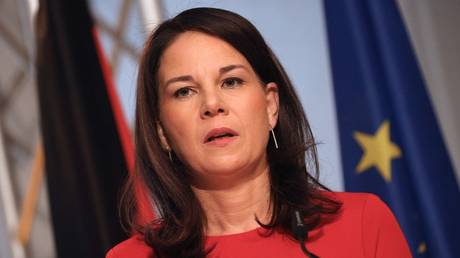German Foreign Minister Advocates for Tax on iPhone Updates
The EU should put its “entire toolbox on the table” in response to new US tariffs, Annalena Baerbock has said. German Foreign Minister Annalena Baerbock has suggested that a fee on iPhone software updates could be an appropriate response to...

German Foreign Minister Annalena Baerbock has suggested that a fee on iPhone software updates could be an appropriate response to the US tariffs on EU goods, as reported by the newspaper Der Tagesspiegel.
This suggestion comes after US President Donald Trump announced a forthcoming 25% tariff on hundreds of billions of dollars’ worth of imported cars and auto parts from the EU, which is set to take effect next week. Trump has also warned of additional measures should the EU retaliate with its own tariffs.
During her speech at the Berlin European Conference on Thursday, Baerbock referenced the EU’s Digital Services Act, adopted in 2022, which outlines mechanisms for addressing external trade pressures.
“If others … propose a 25% tariff, then we can put our entire toolbox on the table,” Baerbock stated.
She proposed a potential levy on digital services: “How often do we update our iPhone? Add ten cents to it – that would bring a lot of money for Europe, though others might not like [it] so much.”
However, the report raised concerns about whether European consumers, who would ultimately shoulder the cost, would support the German foreign minister’s proposal.
According to the German daily NOZ, which cited Statista data, there are approximately 165 million iPhone users in the EU. With iPhones generally receiving six to ten software updates each year, a €0.10 charge per update could generate around €165 million annually. Apple reported a global net profit of $36.3 billion in the first fiscal quarter of 2025, according to company filings.
The US has long criticized the EU for unfair trade practices, including high tariffs on American goods and regulatory obstacles affecting US companies.
In February, Trump announced he would impose 25% tariffs on all imports from the EU, suggesting the bloc was established to “screw” America.
Analysts believe the latest tariffs could have a severe impact on the German auto industry, with manufacturers like Volkswagen and Mercedes-Benz facing significant challenges in the US market. Rising production costs and factory closures have already placed pressure on various segments of Germany’s manufacturing sector.
Trump's 25% tariff increase on steel and aluminum imports from the EU became effective on March 12, following the expiration of previous exemptions and duties. In retaliation, the EU announced it would impose counter-tariffs on €26 billion worth of US goods starting in April.
A similar trade dispute arose during Trump’s first term when he enacted tariffs of 25% on European steel and 10% on aluminum, provoking retaliatory actions from Brussels. These measures affected over $10 billion of transatlantic trade.
Anna Muller for TROIB News
Find more stories on Business, Economy and Finance in TROIB business












